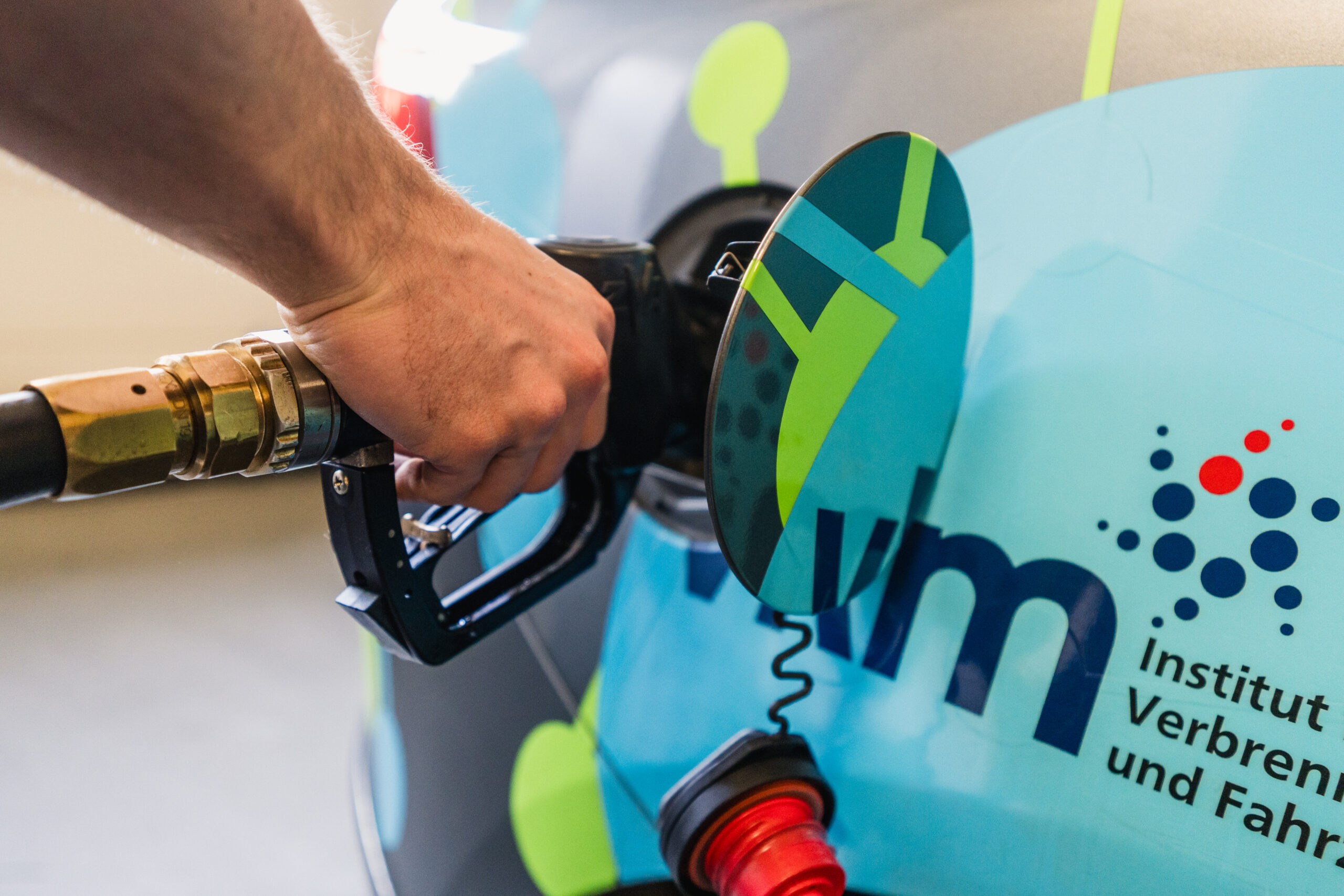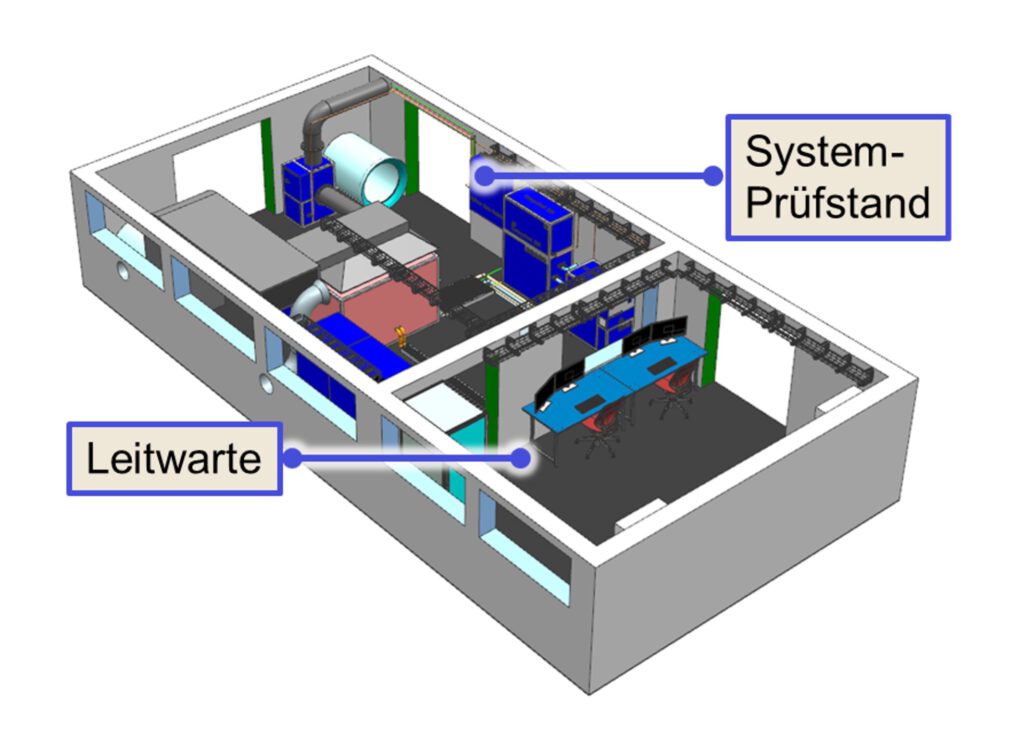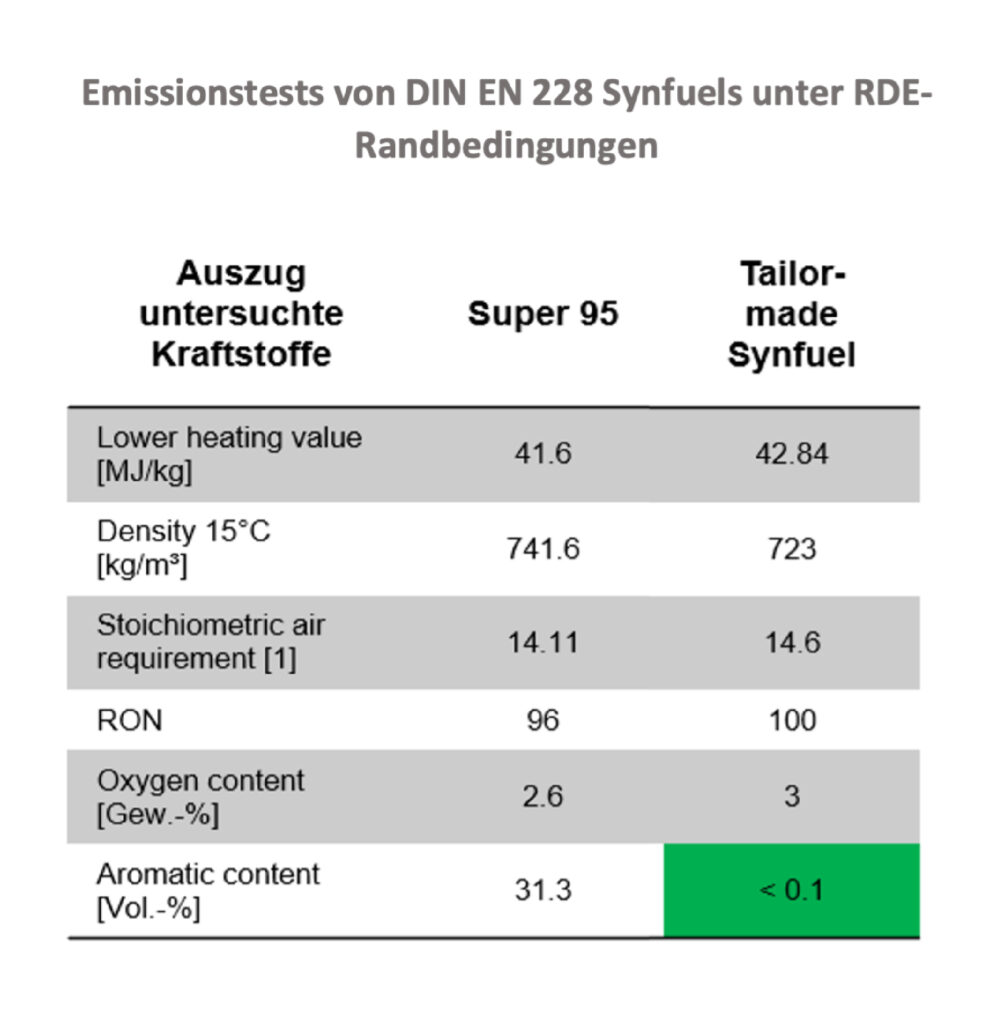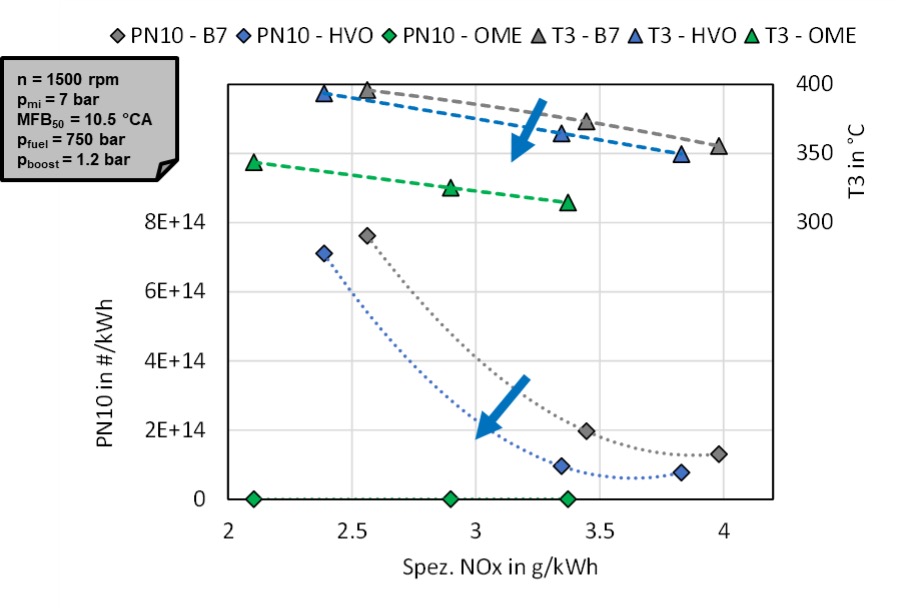Future Energy Sources

In addition to the infrastructure for testing alternative energy sources, above all hydrogen, the Technology and Environmental Centre has extensive expertise in the field of applications for operation with synthetic fuels.
Hydrogen as an alternative energy source in combustion engines
The hydrogen engine also has an important role to play in the context of hydrogen as an energy carrier. An important task here is to be able to appropriately evaluate the drive systems in their respective applications and assess their potential. Both the fuel cell and the hydrogen engine offer advantages, particularly with regard to the use of hydrogen in the commercial vehicle sector. The engine test bench at the Technology and Environment Centre is capable of operating with hydrogen and provides the optimum test environment for research and development in the use of hydrogen as an energy source in the combustion engine.
Fuel-cell applications

The Institute for Internal Combustion Engines and Powertrain Systems at the Technical University of Darmstadt has a heavy-duty fuel cell test bench. The Technology and Environmental Centre acts as a close partner here and provides support with its many years of experience in the areas of system development, measurement technology and the design of drive systems.
The fuel cell system test bench has a maximum system output of 160 kW. In a second phase, the system output will be increased to 300 kW. A consistent development methodology is also implemented on the fuel cell system test bench through in-the-loop operation. The fuel cell system-in-the-loop test bench (BZSiL) offers the opportunity to analyse the fuel cell system at the overall vehicle level in early development phases by operating a real fuel cell system on the test bench with the aid of simulated powertrains, operating strategies, vehicles and driving scenarios.
You can find additional information HERE at the VKM Website.
Synthetic Fuels


Gasoline Fuels
Potentially renewable and fossil-free gasoline fuels are identified at the test facilities of the Technology and Environmental Centre and their potential in terms of performance, efficiency and emission behaviour is analysed in comparison to conventional gasoline.
Extensive measurement campaigns are being carried out on the 4×4 chassis dynamometer and in real road traffic in collaboration with the Institute for Internal Combustion Engines and Powertrain Systems at TU Darmstadt.
In terms of content, the focus is on the technical boundary conditions, testing and pilot introduction of synthetic gasoline fuels in mass motorsport. Detached from political framework conditions, motorsport offers the ideal platform for the development and demonstration of alternative drive technologies under the most demanding conditions and can also serve as a technology driver for the transfer of synthetic fuels to the existing fleet.
The use of synthetic fuels also offers considerable potential for minimising pollutants in future drive systems. The drop-in capability also ensures operation in the existing fleet. Current research projects are showing promising results. An excerpt of current research results, which were analysed in cooperation with the Institute of Internal Combustion Engines and Powertrain Systems show clear emission reduction potentials for DIN EN 228 synfuels under RDE boundary conditions in relation to the number of particles.
Diesel Fuels
In the research field of biogenic diesel fuels, there is a particular focus on drop-in capable fuels that can be used without any modifications to the engine. In particular, 2nd generation biogenic fuels that do not have a negative impact on food availability are being investigated. Biogenic fuels have the advantage of being CO2-neutral and also have potential in terms of emission behaviour. The investigations with biogenic fuels at the VKM Institute focus on the analysis of combustion behaviour and emissions. In addition, analyses of wear and durability are also carried out on the engine test bench at the Technology and Environmental Centre.
An extract of current research results shows the emission reduction potential for the use of "Hydrotreated Vegetable Oil" (HVO) and "Oxymethylene Ether" (OME) compared to a B7 diesel standard fuel with varying EGR rates under constant boundary conditions.
Contact us
Have we sparked your interest or do you have any questions about our products or our research? Don't hesitate to get in touch with us!

